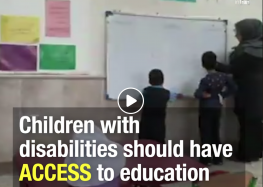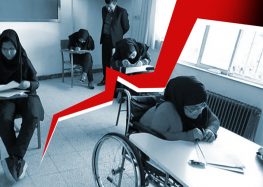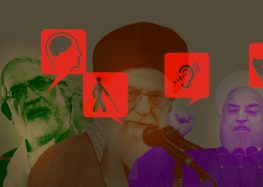Iran’s Parliament Votes to Allow Blind Candidates to Run for Seats
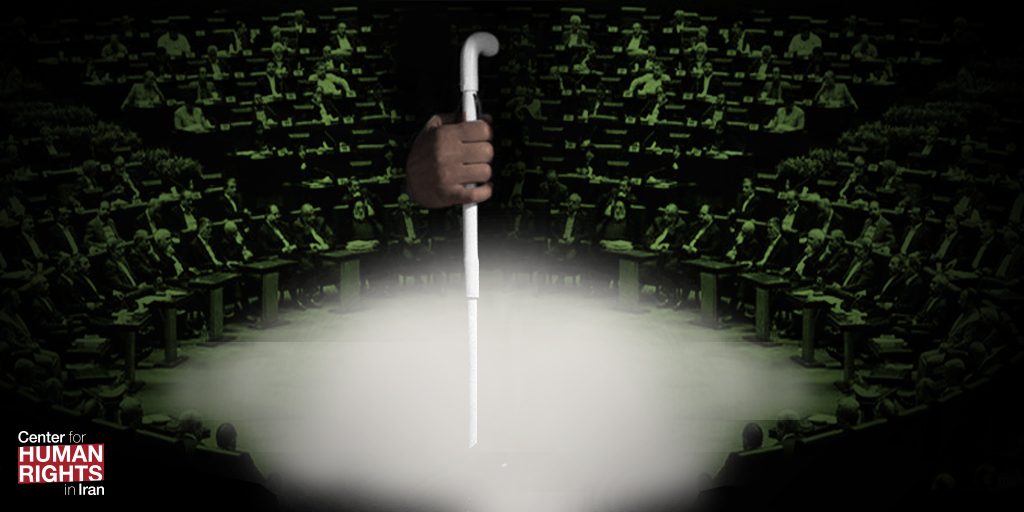
Amendment Requires Guardian Council’s Approval
After years of advocacy efforts by defenders of the rights of people with disabilities in Iran, the country’s Parliament has voted to pass an amendment that, if approved by the Guardian Council, would allow blind people to run for Parliament.
Mohammad Javad Kolivand, the chairman of the Parliamentary Committee for Councils and Domestic Affairs, announced the news in an interview with the Iran Sepid daily on April 10, 2019.
“Because of the Islamic Republic of Iran’s membership in international conventions for the elimination of discrimination against some citizens who have disabilities, this word [sight] was removed from the law after a proposal by a number of members of Parliament, the approval of the committee and a big vote by more than 60 percent of MPs,” Kolivand said.
Kolivand’s interview was focused on Iran’s compliance with its international commitments, namely the Convention on the Rights of Persons With Disabilities (CRPD), to which Iran is a party.
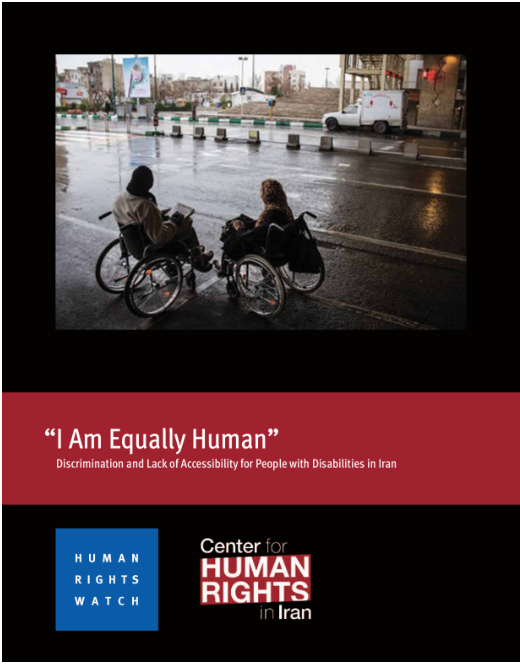
The 72-page report, “‘I Am Equally Human’: Discrimination and Lack of Accessibility for People with Disabilities in Iran,” documents the everyday barriers people with disabilities meet when going to government offices, healthcare centers, and when using public transportation.
Article 28 of Iran’s Islamic Consultative Assembly Elections Law states that parliamentary candidates should be “physically healthy to the extent of being blessed with sight, hearing and speech.”
But this is a violation of the CRPD’s Article 29, which requires states to” “…ensure that persons with disabilities can effectively and fully participate in political and public life on an equal basis with others, directly or through freely chosen representatives, including the right and opportunity for persons with disabilities to vote and be elected.”
The Iranian government claims it doesn’t respond to international pressure regarding human rights issues but Iranian officials have repeatedly admitted to being sensitive to such pressure.
“…[U]nfortunately, we ignore divine laws in order to avoid UN condemnation for violating human rights,” Attorney-General Mohammad Jafar Montazeri said in a speech to police detectives in Tehran on January 16, 2019.
Iran is a party to the CRPD, but its domestic laws are not in compliance with the convention’s guidelines.
The UN and human rights activists have consistently criticized the Iranian government’s discriminatory state policies towards people with impaired vision, hearing and speech.
In its May 2017 report on Iran, the Committee on the Rights of Persons with Disabilities expressed concern over “barriers facing people with sensory or intellectual disabilities in becoming parliamentary candidates.”
The committee is comprised of 12 independent experts charged with supervising the implementation of the CRPD. Member states like Iran are required to submit regular reports on how the convention is being applied in their country.
Amendment Excludes Hearing Impaired and Other Disabilities
The pending legal amendment that would allow blind people to run for Parliament took eight years to reach the Guardian Council, a clerical body that vets all laws and election candidates.
In 2011, Fatemeh Alia, an MP from Tehran, first introduced a proposal to allow blind people to run but was unable to amass support for it.
In 2013, a group of blind people made a push to amend the parliamentary elections law but a majority of legislators refused to back it. That year, two blind candidates, Ali Saberi and Mojtaba Shakeri, got elected to the Tehran City Council.
Now blind people are one step closer to being allowed to run for seats in Iran’s Parliament but the hearing impaired and people with other disabilities remain barred.

